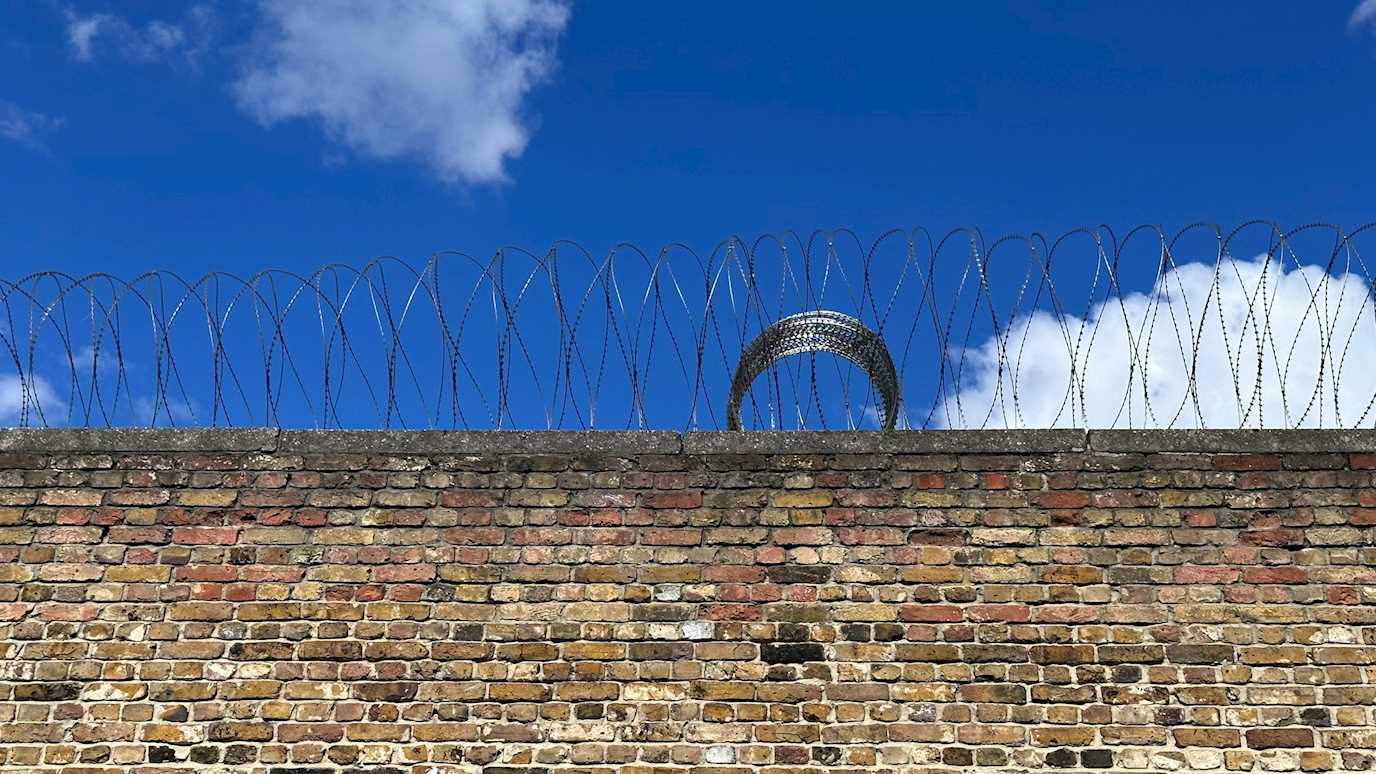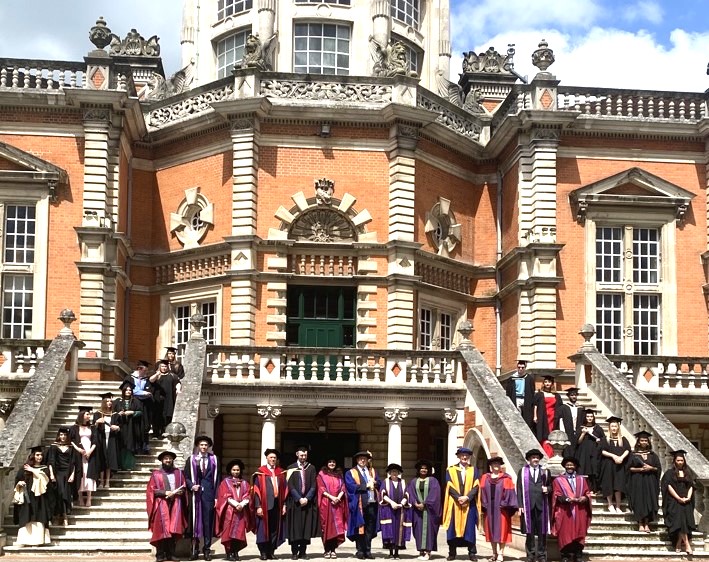This blog, written by MSc student Muhammed Qureshi, explores state terrorism in the context of China's abuse of the Uighur people

Human rights groups called for further investigations following the recent long-awaited UN report which said China’s abuses of Uighur Muslims may constitute crimes against humanity. The report found credible reports from those detained in so-called Vocational Education and Training Centres of the torture of Uighurs, a Turkic minority group in the Xinjiang province. The report highlighted that China had justified its policies through narratives of preventing terrorism. However, when trying to understand China’s abuse of the Uighur people, is the term ‘crime against humanity’ the best way to deal with this issue? Could the term ‘state terrorism’ be a better description of China’s actions?
The implications of using state terrorism as a label for events in Xinjiang can focus on providing different ways to tackle China’s counterterrorism policies. One of which could be improving frameworks on counterterrorism or establishing harsher protocols through international organizations such as the UN’s Office of Counter-Terrorism (UNOCT) that can severely punish those who violate. In addition, the term crime against humanity can fall under the scope of state terrorism, because China’s actions can be viewed as coercive, violent and as aimed at generating a psychological and propagandistic effect of fear on its target audience. However, by using the term state terrorism, we can gain a deeper sense of the injustice in how China exploits its counterterrorism policies to instil fear in Muslims in Xinjiang.
What is State terrorism?
Before we begin to conceptualise state terrorism, we need to address terrorism first. There is no universally agreed definition of terrorism. Academics argue the meaning of terrorism depends on context, but this does not mean that terrorism should not be defined. Scholars such as Alex Schmid argue that that terrorism is a ‘form or tactic of fear-generating, coercive political violence’ and a ‘calculative, demonstrative, direct violent action… performed for its propagandistic and psychological effects’ on their targets.
In most cases, terrorism is generally assumed to be committed by non-state actors, such as violent Jihadists Al-Qaeda and ISIS, or far right groups such as the German National Socialist Underground, (NSU). The threat is asymmetric, and about those without access to state power using terror tactics to make a political point, usually harming civilians to send a message to governments. It is usually states who define what terrorism is, and at times may use the term pejoratively to delegitimise particular groups opposing them.
However, there is another view. It can be said that states can use terrorism as a method. This acknowledges that terrorist actors are diverse, and we cannot single out one ideology or perpetrator. This approach argues that there is potential for states to use the method of terrorism to achieve their goals. State terrorism then refers to state actors or proxies using the threat or deliberate use of violence to create fear in a wider audience meaning that the direct victims are not the main targets because they are used for a political effect.
Experts such as Richard Jackson, Eamon Murphy and Scott Poynting have in fact pointed to ‘terror states’ such as Nazi Germany, Stalin’s Soviet Union, Pol Pot’s Kampuchea and Pinochet’s Chile, where the entire population lived in fear because no one was completely safe including loyal party members. What this also means is that state terrorism is not a new phenomenon, or idea.
I am not implying that China under President Xi Jinping should be included as a ‘terror state’, but focusing on Xinjiang, China is creating a fearful region. However, when we understand that states can also use terror tactics, the balance of responsibility shifts, and they too must take responsibility for their violent actions.
Fear and Coercion
The UN Report outlined a broad picture of China’s actions as potential crimes against humanity. If we understand these crimes as state terrorism, we get a better sense of China’s actions as violence intended to create fear in order to send a message, not to a state, but to the Uighur people. Therefore, we can understand the true nature of China’s counterterrorism policies in a position where we do not simply label their actions as a crime against humanity – it is more specific.
China’s state terrorism has been a gradual process of using punitive measures on Uighurs and has done this with the aim of using fear to change their behaviour to suit Chinese social and political goals.
First, China’s policies supported the migration of the Han-Chinese – a majority ethnic group in China believing in more secular values - to Xinjiang. This triggered tensions with the Uighurs due to state discrimination regarding economic development, employment and prosperity. From this, ethnic violence began to rise, and China used this to justify harsh crackdowns on Uighurs. China framed this in the language of the prevention of Uighur separatism and extremism, as a message to the international audience that its actions were justified.
Second, China’s counterterrorism policies have imposed strike hard campaigns, detrimental to the Uighur people since 2014. ‘’Re-education camps’’ and ‘’training centres’’ again mask the reality of forced labour and torture in internment camps. Here the aim is to force assimilation and coerce Uighurs to pledge loyalty to China. The effect of this is the creation of fear for the wider Uighur population. Human Rights Watch have reported that since China increased control over its borders and passports, some Uighurs are unable to leave Xinjiang nor see their loved ones.
Third, China has imposed extreme levels of surveillance by installing CCTV cameras on streets, using biometric scans, and increasing police patrols. This again contributes to widespread fear, as this makes it hard for Uighurs to leave their house without being monitored and raises suspicion of "extremist activity". Also, China has disappeared Uighurs according to Amnesty International. This creates anxiety because there is no communication between the authorities and the Uighurs, and a lack of information on disappeared relatives.

An attack on Muslim culture
The Uighur culture is rich with Islamic and Turkic history. However, China sees this as a threat to the "Chinese" way of living and used counterterrorism policies to justify violence against Uighurs. The destruction of mosques has been noticeable through satellite images, which capture the eerie atmosphere of Xinjiang. Amnesty International have reported on the banning of fasting, religious texts and Islamic names for children. These restrictions were deliberately used to force Uighurs to reject their heritage and Islamic background. The continuing use of strike hard campaigns suggest that China’s War on Terror only brings terror and fails to prevent violent extremism as argued in Boehm’s study.
It is important to consider China is committing state terrorism because repeated evidence of torture in so-called re-education camps, to banning religious practices aims to coerce Uighurs through violence. Their methods attempt to bring fear to Uighurs and other minorities, forcing them to accept traditional Chinese values. Therefore, China is using terrorist methods to achieve their goal.
What next?
The global power of China has meant that it is difficult to impose sanctions without retaliation. The example of Russia’s invasion of Ukraine shows that the consequences of international sanctions can be damaging such as inflated prices on oil and gas creating high energy bills for those living in Europe.
China’s actions against the Uighurs are indeed a crime against humanity. However, this does not go far enough. The term does not recognise the systematic use of terror to send a message to the wider Uighur population, and to change their behaviour. Using the term state terrorism would also make clear the hypocrisy of China’s exploitation of their own counterterrorism policies, and the global war on terror.
What is more, if we understood China’s actions as state terrorism, could we see a greater international response against China?
The UN could impose sanctions to tackle this issue effectively. One of which could be on weaponry such arms embargoes as this aims to weaken China’s capabilities of inflicting violence on Uighurs as well damaging their imports and exports trade. Yes, the term ‘terrorism’ is politically volatile; but the recognition that state actors can also terrorise populations as a strategic action cannot be understated.
China says the UN report is part of a western disinformation agenda; but the report is a step in the right direction. However, the international community must now pick up the pace with proactive measures to make China aware of how their actions resemble terrorism. States who abuse international laws obliging them to protect their populations must be held more accountable for their actions. It is difficult but time is running out as the evidence suggests China will not stop until their objective of assimilation is completed.
Muhammed Qureshi is a student on the MSc in Terrorism and Counter-Terrorism Studies 2021-22. His recent dissertation was entitled State terrorism in Xinjiang: A lesson on how counterterrorism policies can terrorize Uighurs.
























